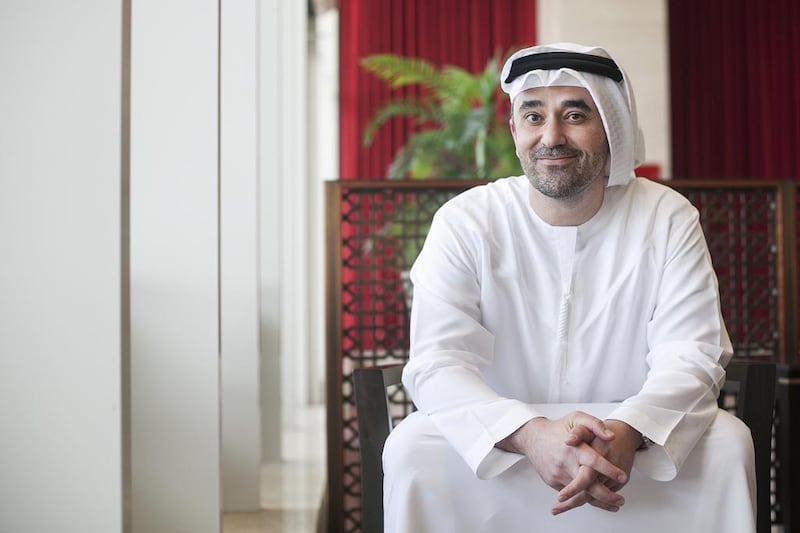Omar Ghobash cleared the garbage from his life and, at only 36, became the UAE's Ambassador to Russia. He then brought NYU to Abu Dhabi. His next goal is introduce Arabic literature into schools and universities.
ABU DHABI // Before becoming the Ambassador and entrepreneur he is today, Omar Ghobash spent years trekking through mountains on a journey of soul revival.
Mr Ghobash has a long list of achievements. He was the first UAE Ambassador to Russia in “maybe four or five years”, brought New York University to Abu Dhabi and started a project to encourage youths and academics to embrace contemporary Arabic fiction.
He was only 36 when he was appointed Ambassador in 2008.
“After September 11 happened, my reaction to it was to look around and get involved in the world around us, so I got involved in a few business ventures, in an art gallery, in education,” Mr Ghobash says. Then he wanted to go back to the business world.
“Since my mother is Russian, I looked at the trade figures between the Arab world and Russia and saw they were very small, so I set off and spent a few months in Moscow and it turned out that, fortunately, we didn’t have an Ambassador there.”
After taking the post, he decided to focus on economics.
“And that worked out pretty well. In the past two or three years the UAE has put US$6 billion (Dh22bn) to investing in Russia,” Mr Ghobash says.
“We have built a wonderful economic bridge and we have an institutional presence in Moscow.” A team from Abu Dhabi visits the Russian capital every month to continue discussions. “And we have already developed some capital,” he says.
Some years before that, Mr Ghobash spent five years in a “vacuum”, where he climbed mountains in Nepal and Switzerland. “When you are climbing a mountain you are with a team and you don’t have the option to quit,” he says.
Once the summit is reached, there is the journey down.
“So tying yourself to an objective is a fantastic mechanism for living life, and it makes you clear away all the garbage,” he says.
“I was doing what I needed to do: go out and feel nature and be there. It was not about finding myself.”
That gave him the drive to become a patron. His most recent project is to promote contemporary Arabic fiction, so it can be taught in schools, universities and be the subject of open discussions in schools – to start building communities around it.
“Arabic fiction is fascinating because it links in to the whole idea of counter-extremist narratives and the questions that young people are asking among themselves,” Mr Ghobash says.
“Many are answered in these novels, because the novelists are looking at the social problems of young people.”
The project aims to teach and analyse this material with a minimum amount of money and highest connections possible.
“You are looking at a minimum of 800 novels produced over the past eight years. Now think how many kids in school or adults know about these novels,” he says. “So what I would like to do is take a set of the most interesting novels, maybe the top five or 10, and start creating a curriculum around it.
“We keep saying we want to counter extremist narratives, but it is Google that is countering and small clips that say ‘Muslims don’t do that’.”
The incidents of September 11 also gave Mr Ghobash the idea to bring NYU to the capital.
“I had set up a couple of businesses and they were going quite well, but I was always occupied with the lack of clarity between extremism and fundamentalism,” he says.
He started by forming the Third Line art gallery in Dubai to give a Middle East point of view, then decided to do something in education, and contacted the president of NYU to persuade the university to come to the Arab world.
“The president was very positive about it,” Mr Ghobash says. “Then I introduced them to Mubadala and they gelled.
“At the time it could have been a bold and ridiculous idea to set a New York university in the Arab world, but my reasoning at the time was that opening it in this part of the world would repair some of the damage caused by September 11. Specifically NYU, because it’s in downtown and near ground zero.
“It was extremely important to me that we link in intellectually, academically, mentally and emotionally with the people from NYU and allow them to see what is possible in the Arab world and contribute to our education as well.”
hdajani@thenational.ae







